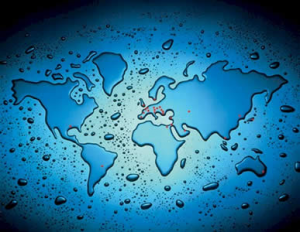[Doug Cassel is Professor of Law at Notre Dame Law School]
Venezuelan President Hugo Chavez on April 30 directed his Council of State (a policy advisory body) to study Venezuela’s “withdrawal” from the Inter-American Commission on Human Rights. He asked for their recommendation within days, not weeks. This is the latest move in the Bolivarian Republic’s long record of denouncing the Commission and the Inter-American Court of Human Rights as tools of US imperialism, supposedly biased against socialist Venezuela.
But the real reason for Chavez’ pronouncement, say human rights groups – in my view correctly – is that the Commission and Court hold the Chavista regime accountable for its systematic violations of the independence of the judiciary (
1,
2), and of freedom of the press, (
3,
4), as well as other serious violations of human rights (
5,
6).
Chavez’ call was promptly cheered by other high officials in Caracas. It seems a foregone conclusion that the Council will recommend withdrawal. Since Chavez has already declared that Venezuela should have withdrawn a long time ago, he is all but certain to heed such a recommendation.
Withdrawing from the Commission, however, is not so simple.
 Like thousands of other high school kids, today is AP Comparative Government exam day in the Alford household. According to the AP College Board, "The course aims to illustrate the rich diversity of political life, to show available institutional alternatives, to explain differences in processes and policy outcomes, and to communicate to students the importance of global political and economic changes." But in order to move the discussion from the abstract to the concrete, AP Comp. Gov. students are required to study six--and only six--representative countries. Can you guess the six countries chosen as suitable for comparison? And could you answer the short- or long-essay questions these high school whiz kids are required to answer? Details after the jump:
Like thousands of other high school kids, today is AP Comparative Government exam day in the Alford household. According to the AP College Board, "The course aims to illustrate the rich diversity of political life, to show available institutional alternatives, to explain differences in processes and policy outcomes, and to communicate to students the importance of global political and economic changes." But in order to move the discussion from the abstract to the concrete, AP Comp. Gov. students are required to study six--and only six--representative countries. Can you guess the six countries chosen as suitable for comparison? And could you answer the short- or long-essay questions these high school whiz kids are required to answer? Details after the jump:
